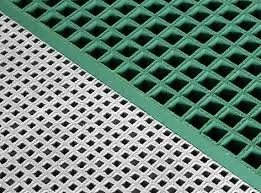
-
 Afrikaans
Afrikaans -
 Albanian
Albanian -
 Amharic
Amharic -
 Arabic
Arabic -
 Armenian
Armenian -
 Azerbaijani
Azerbaijani -
 Basque
Basque -
 Belarusian
Belarusian -
 Bengali
Bengali -
 Bosnian
Bosnian -
 Bulgarian
Bulgarian -
 Catalan
Catalan -
 Cebuano
Cebuano -
 China
China -
 China (Taiwan)
China (Taiwan) -
 Corsican
Corsican -
 Croatian
Croatian -
 Czech
Czech -
 Danish
Danish -
 Dutch
Dutch -
 English
English -
 Esperanto
Esperanto -
 Estonian
Estonian -
 Finnish
Finnish -
 French
French -
 Frisian
Frisian -
 Galician
Galician -
 Georgian
Georgian -
 German
German -
 Greek
Greek -
 Gujarati
Gujarati -
 Haitian Creole
Haitian Creole -
 hausa
hausa -
 hawaiian
hawaiian -
 Hebrew
Hebrew -
 Hindi
Hindi -
 Miao
Miao -
 Hungarian
Hungarian -
 Icelandic
Icelandic -
 igbo
igbo -
 Indonesian
Indonesian -
 irish
irish -
 Italian
Italian -
 Japanese
Japanese -
 Javanese
Javanese -
 Kannada
Kannada -
 kazakh
kazakh -
 Khmer
Khmer -
 Rwandese
Rwandese -
 Korean
Korean -
 Kurdish
Kurdish -
 Kyrgyz
Kyrgyz -
 Lao
Lao -
 Latin
Latin -
 Latvian
Latvian -
 Lithuanian
Lithuanian -
 Luxembourgish
Luxembourgish -
 Macedonian
Macedonian -
 Malgashi
Malgashi -
 Malay
Malay -
 Malayalam
Malayalam -
 Maltese
Maltese -
 Maori
Maori -
 Marathi
Marathi -
 Mongolian
Mongolian -
 Myanmar
Myanmar -
 Nepali
Nepali -
 Norwegian
Norwegian -
 Norwegian
Norwegian -
 Occitan
Occitan -
 Pashto
Pashto -
 Persian
Persian -
 Polish
Polish -
 Portuguese
Portuguese -
 Punjabi
Punjabi -
 Romanian
Romanian -
 Russian
Russian -
 Samoan
Samoan -
 Scottish Gaelic
Scottish Gaelic -
 Serbian
Serbian -
 Sesotho
Sesotho -
 Shona
Shona -
 Sindhi
Sindhi -
 Sinhala
Sinhala -
 Slovak
Slovak -
 Slovenian
Slovenian -
 Somali
Somali -
 Spanish
Spanish -
 Sundanese
Sundanese -
 Swahili
Swahili -
 Swedish
Swedish -
 Tagalog
Tagalog -
 Tajik
Tajik -
 Tamil
Tamil -
 Tatar
Tatar -
 Telugu
Telugu -
 Thai
Thai -
 Turkish
Turkish -
 Turkmen
Turkmen -
 Ukrainian
Ukrainian -
 Urdu
Urdu -
 Uighur
Uighur -
 Uzbek
Uzbek -
 Vietnamese
Vietnamese -
 Welsh
Welsh -
 Bantu
Bantu -
 Yiddish
Yiddish -
 Yoruba
Yoruba -
 Zulu
Zulu
fiberglass pipe
The Advantages of Fiberglass Pipes A Comprehensive Overview
Fiberglass pipes, made from reinforced plastic composites, have been gaining traction in various industries due to their exceptional qualities. These pipes, composed of woven glass fibers embedded in a thermosetting resin, offer numerous advantages that make them a superior choice over traditional materials like steel and PVC.
One of the most significant benefits of fiberglass pipes is their remarkable corrosion resistance. Unlike metal pipes that can rust or corrode when exposed to harsh chemicals or environmental conditions, fiberglass pipes maintain their integrity over time. This property makes them ideal for applications in chemical processing, wastewater treatment, and other corrosive environments. Furthermore, they do not leach harmful substances into the fluids they transport, ensuring the safety and purity of the materials conveyed.
Another critical advantage of fiberglass pipes is their strength-to-weight ratio
. They are much lighter than metal alternatives, which simplifies handling and installation. This feature is particularly beneficial in areas where heavy lifting is impractical or in remote locations where transporting heavy materials can be challenging. The lighter weight also translates into lower transportation costs and quicker project timelines, as fewer resources are needed for lifting and moving the pipes.Fiberglass pipes also demonstrate excellent thermal insulation properties. They can maintain the temperature of the transported fluids, reducing energy costs associated with heating or cooling. This characteristic is particularly valuable in industries where temperature control is crucial, such as in the transportation of heated water, steam, or other temperature-sensitive materials.
fiberglass pipe

Moreover, fiberglass pipes have a smooth internal surface, which significantly reduces friction. This property enhances flow rates and minimizes energy loss in pumping systems, making them more efficient. The lower friction also leads to less wear and tear over time, resulting in lower maintenance costs.
Another crucial consideration is durability. Fiberglass pipes can withstand extreme temperatures and high pressures without compromising their structural integrity. Additionally, their resistance to UV rays and environmental factors extends their lifespan, making them a cost-effective long-term investment.
Despite their many advantages, it is vital to consider the specific application and environmental conditions when choosing pipe materials. Fiberglass pipes may not be suitable for all situations, particularly where extreme mechanical stresses are expected. However, for many industries, the benefits far outweigh the drawbacks.
In conclusion, fiberglass pipes offer a plethora of advantages, including corrosion resistance, lightweight, thermal insulation, and durability. As industries continue to seek more efficient and sustainable solutions, the demand for fiberglass piping systems is likely to grow, establishing them as a viable alternative to conventional materials. Their versatility and performance make fiberglass pipes an increasingly popular choice for modern infrastructure projects.
Latest news
-
Exploring the Benefits of Top Hammer Drifter Rods for Enhanced Drilling PerformanceNewsJun.10,2025
-
High-Precision Fiberglass Winding Machine for GRP/FRP Pipe Production – Reliable & Efficient SolutionsNewsJun.10,2025
-
FRP Pipes & Fittings for Shipbuilding - Corrosion-Resistant & LightweightNewsJun.09,2025
-
Premium FRP Flooring Solutions Durable & Slip-ResistantNewsJun.09,2025
-
Premium Fiberglass Rectangular Tanks Durable & Lightweight SolutionNewsJun.09,2025
-
Tapered Drill String Design Guide Durable Performance & UsesNewsJun.09,2025









